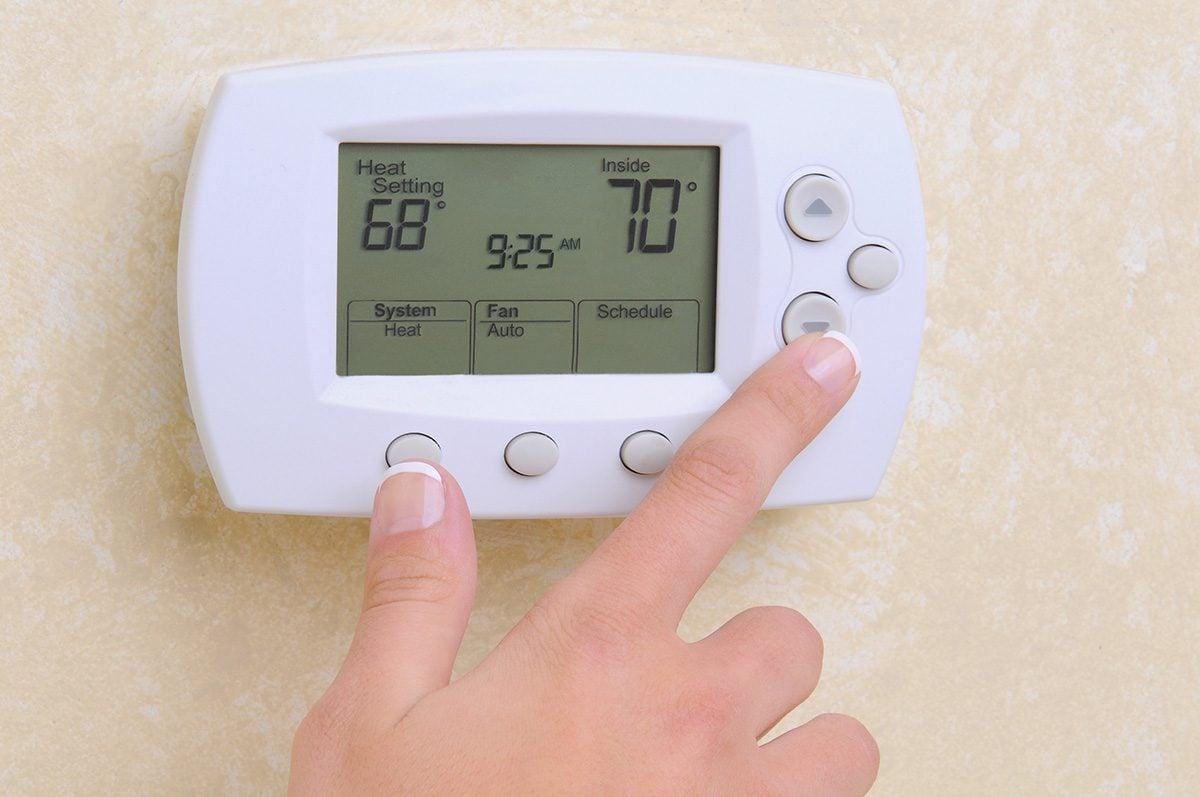New England is well known for its frigid winters, which are well underway by late October and often extend through the beginning of April. The colder it is, the harder your HVAC system has to work. Here are 5 tips to help it.
1. Turn Down Your Thermostat (A Little)
You can cut the amount of effort your HVAC unit has to expend by lowering your thermostat by a few degrees. What you don’t want to do is turn your thermostat down significantly while you’re gone and then turn it back up when you get home — this leads to your heating system working even harder to warm the air back up.
Instead, simply lower the thermostat by two to three degrees and leave it there to keep your system from having to work so hard throughout the winter.
2. Clean Your Heating System Filters
If your HVAC unit’s filters are dirty or clogged with debris, this makes it more difficult for your system to push warm air through your unit into your home. The air in your home stays cooler, prompting your thermostat to keep your system on in an effort to raise the temperature to what it’s set at. Make sure your unit’s filters are clean prior to the winter season so your system doesn’t have to fight harder than necessary to get warm air into your home or business.
3. Keep Your Outdoor Unit Clean
There’s no shortage of snow in Boston during the winter and while beautiful to look at, it can wreak havoc on your outdoor HVAC unit. Whether you have a ductless or ducted heating system, if your outdoor unit is covered in snow and ice, it’s going to have a much harder time working efficiently. Make sure to keep your outdoor unit clean throughout the winter to ensure it stays in good working condition when you need it most.
4. Consider Ductless HVAC
Ductless HVAC is the most efficient heating available on the market and is designed to work extraordinarily well in low and even sub-zero temperatures. For example, Mitsubishi Electric is a top provider of ductless HVAC equipment that can continue to heat efficiently in temperatures as low as -13 degrees Fahrenheit! It does this using INVERTER® technology that allows the unit’s compressor to operate at higher heating speeds in colder weather.
5. Use Supplemental Heating When Necessary
Although ductless heating is plenty capable of heating a home in even the most frigid weather, if you have supplemental heating available, it may be a good idea to use it when the temperatures drop below zero. For example, if you have electric baseboard or oil heating, you can turn these systems on to give your ductless unit a helping hand.
Even just doing so a few times a year when the temperature drops lower than usual can extend the life of your ductless system significantly. Wood stoves can also be used to supplement ductless heating, however, they tend to reduce indoor air quality if utilized frequently.
Get Help Battling Brutal Winters with N.E.T.R., Inc.
New England is known for its harsh winters, and this year, you can’t afford not to be comfortable in your own home. At N.E.T.R., we can help you come up with creative solutions to ward off extremely cold weather that is specifically designed with your unique needs and available resources in mind. Contact us today at 781.933.NETR (6387) for more information.

